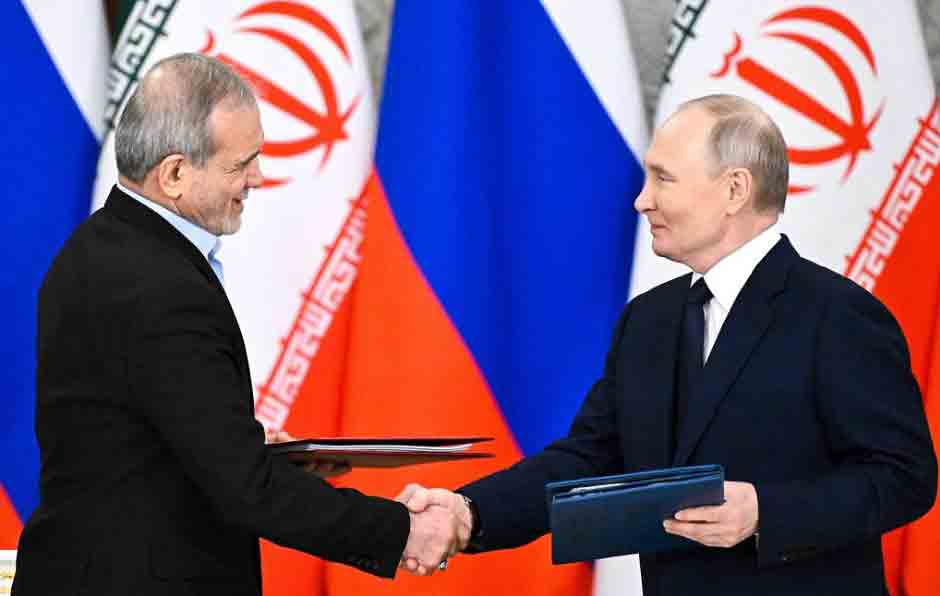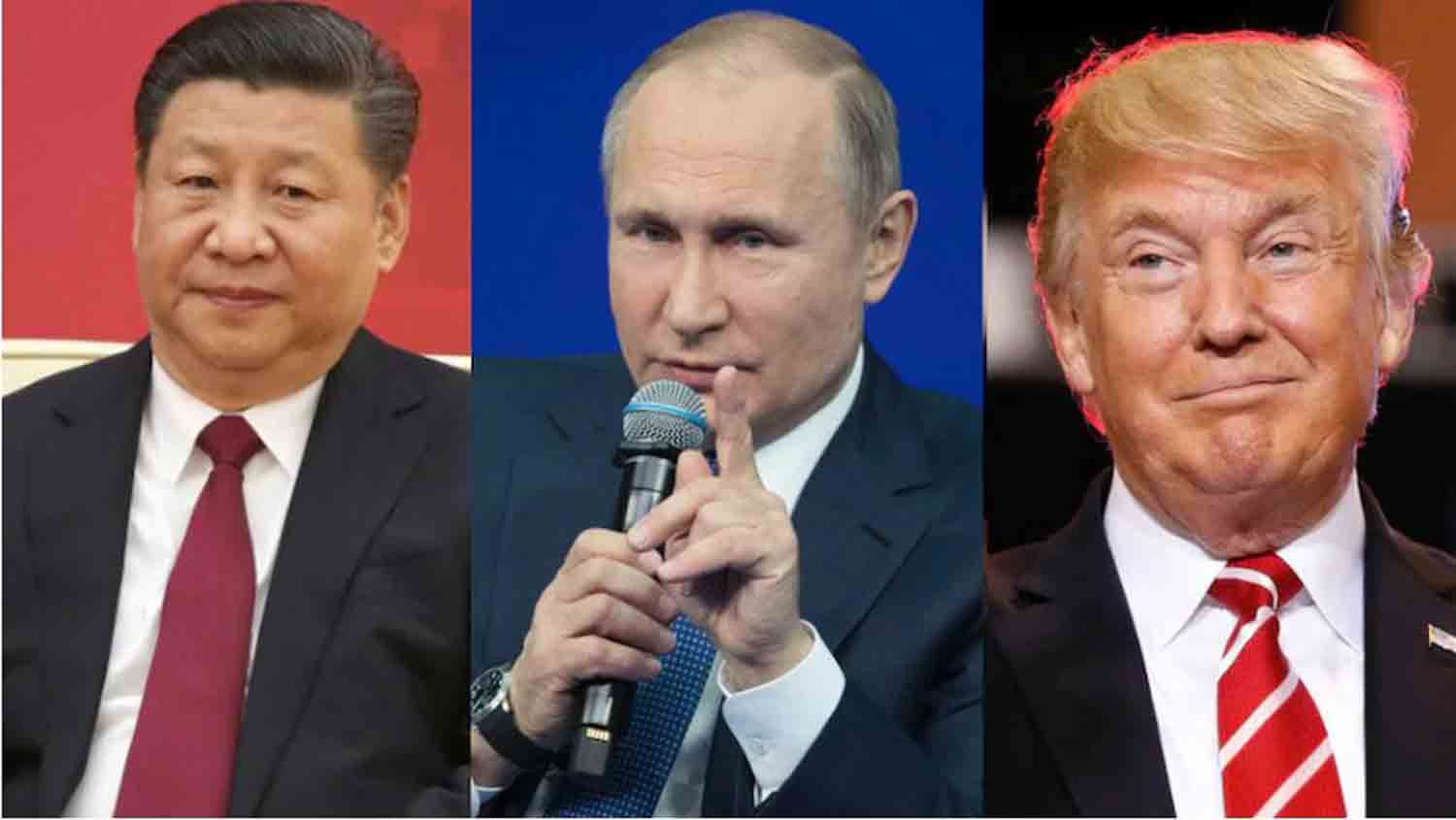Russian President Vladimir Putin and Iranian President Masoud Pezeshkian engaged in discussions in Moscow on Friday, prior to the anticipated signing of a strategic partnership treaty that aims to enhance defense collaboration, a development that may raise concerns in the West.
During his inaugural visit to the Kremlin since assuming the presidency last July, Pezeshkian expressed optimism about the potential to finalize an agreement for the construction of a nuclear power plant in Iran with assistance from Russia.
Putin welcomed Pezeshkian in an impressive Kremlin chamber, where they convened at an elaborately decorated table adorned with the flags of both nations. “We will explore all facets of our cooperation and formalize a comprehensive strategic partnership agreement,” Putin stated. “This has been a long-term effort, and I am delighted that we have reached this stage,” he added, noting that the agreement is expected to enhance trade and economic relations.
Since the onset of the Ukraine conflict, Moscow has strengthened its relationships with Iran and other nations perceived as adversarial to the U.S., including North Korea. It has already established strategic agreements with Pyongyang and its close ally Belarus, as well as a partnership with China. The forthcoming 20-year agreement between Russia and Iran is not anticipated to feature a mutual defense clause similar to those established with Minsk and Pyongyang; however, it is likely to be viewed with apprehension by the West, which regards both nations as negative forces on the global stage.
Moscow and Tehran assert that their growing partnership is not aimed at opposing other nations. Russia has extensively utilized Iranian drones in the conflict in Ukraine, and in September, the United States accused Tehran of supplying short-range ballistic missiles to Russia for deployment against Ukraine, a claim that Tehran refutes.
While the Kremlin has not confirmed the receipt of Iranian missiles, it has acknowledged that its collaboration with Iran encompasses “the most sensitive areas.” Historically, Russia has provided Iran with S-300 air defense missile systems, and there have been reports in Iranian media regarding interest in acquiring more advanced systems like the S-400, as well as advanced Russian fighter jets.
Pezeshkian’s visit to Moscow coincides with a period of diminishing Iranian influence in the Middle East, following the rise of Islamist rebels in Syria who have ousted ally Bashar al-Assad, and the significant military actions by Israel against Iran-backed Hamas in Gaza. Additionally, Israel has dealt substantial blows to Hezbollah, which is also supported by Tehran.
Russia is also facing challenges in Syria, where it operates two key military facilities vital to its geopolitical and military presence in the region and Africa, but their future is now uncertain under the new Syrian leadership.
Putin met with Pezeshkian during the BRICS summit in Kazan in October and again at a cultural forum in Turkmenistan that same month. Pezeshkian, who had discussions with Russian Prime Minister Mikhail Mishustin prior to meeting Putin, is accompanied by his oil minister, and it is expected that they will address Western sanctions on the oil sector and strategies to navigate them. Mishustin noted that both countries are actively working to enhance cooperation in transport, energy, education, tourism, and cultural domains.
Discover more from Defence Talks | Defense News Hub, Military Updates, Security Insights
Subscribe to get the latest posts sent to your email.





